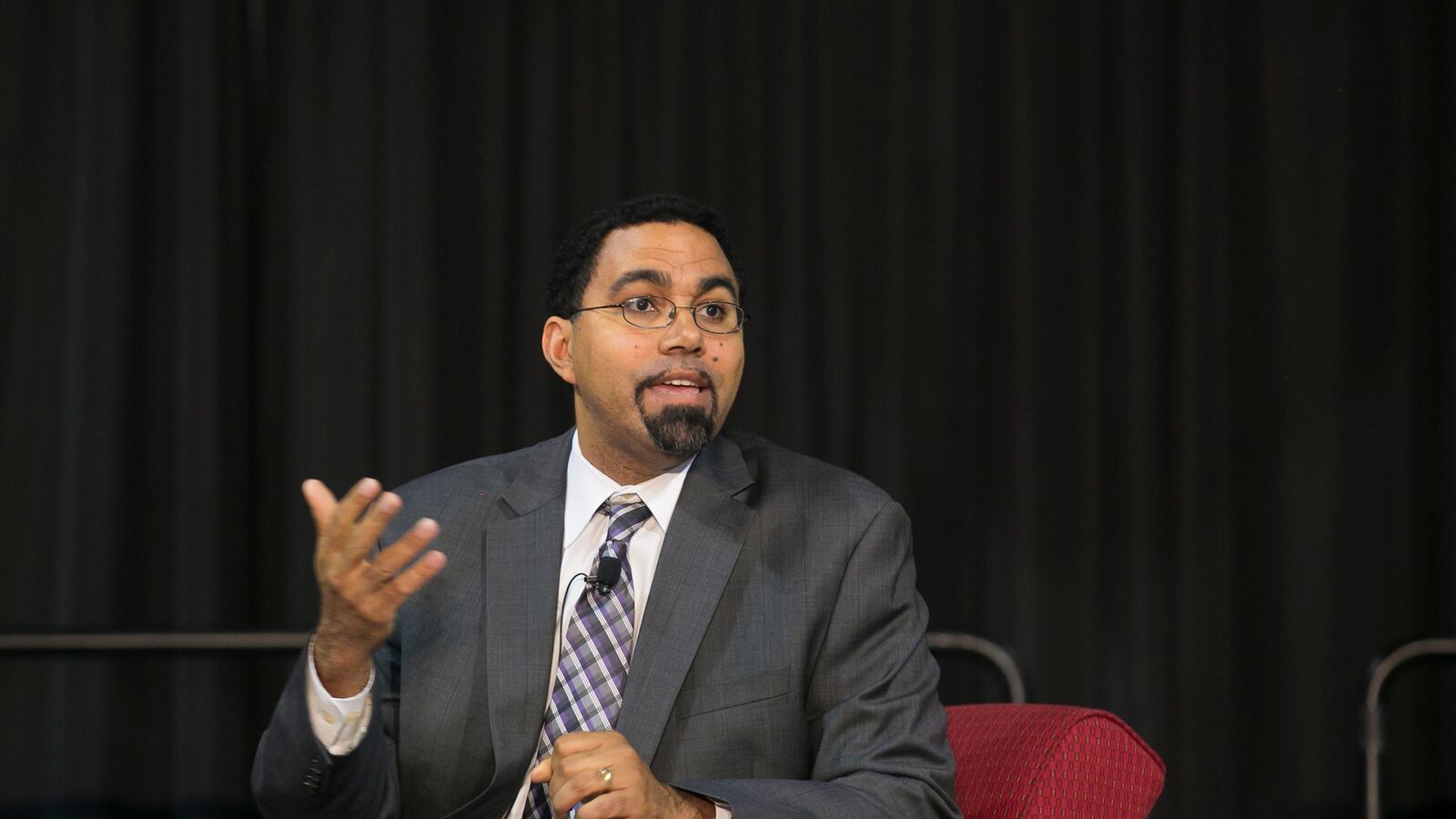U.S. Secretary of Education John King said Monday that Tennessee must look to other indicators to evaluate its academic performance this year after canceling its new standardized assessment last week for most students.
King, who was the keynote speaker at the Education Writers Association national conference in Boston, said the state can look to statistics such as graduation rates and absenteeism to fill the void due to the cancellation of testing in grades 3-8 this year.
“I think Tennessee will navigate through. We’ve been in close contact with the state Education Department there. They will navigate through as other states have,” King said.
King was responding to a question about the decision by Tennessee Education Commissioner Candice McQueen to pull the plug on the state’s new TNReady test in elementary and middle schools due to chronic testing problems — first with the failed rollout of the state’s first online assessment due to too few servers, then with the testing vendor’s inability to print and deliver paper testing materials to all grades in all schools this spring.
King, who has served as the nation’s education chief since January, suggested that the computer glitches are an inherent part of the transition to online testing, and likely will happen in other states too.
“We have to accept that as part of the switch to computer-based assessments, there will be occasional technical challenges,” he said. “The most important thing in the testing process itself is that states are diligent about trying to solve the technical issues.”
King pointed to Nevada, which had technical problems when switching to online testing last school year. While Nevada did not cancel its tests, officials there opted to exclude that test score data from the state’s school accountability system.
In Tennessee, test scores are used as the primary accountability measure for everything from evaluating teachers to determining achievement gaps among different student groups — the latter of which remains a federal requirement under the new Every Student Succeeds Act.
Tennessee was one of the first states to embrace using student achievement in teacher evaluations, and has been held up by King’s predecessor, Arne Duncan, for its test-based accountability system.
"We have to accept that as part of the switch to computer-based assessments, there will be occasional technical challenges."
John King. U.S. Secretary of Education
But TNReady woes have chipped away at Tennessee’s structure of accountability. After online testing was scrapped on the first day of testing in February, Gov. Bill Haslam proposed allowing teachers to discount this year’s scores from their evaluation, which the legislature later approved. Then, the State Department of Education announced that this year’s scores could not place low-performing schools on the state’s “priority list” next year — the list that makes them eligible for state intervention.
Subsequent delivery delays of printed testing materials led the department to propose eliminating district performance designations based on this year’ test scores, such as “exemplary” or “in need of improvement.”
The state and districts still will collect all available student performance information, from the first part of TNReady testing completed in March, and from high schools, which received materials in time to test this spring. All reportable data, such as graduation rates, average ACT scores, and high school test scores, still will be publicly reported on the state’s annual report card in the fall.
Correction: May 12, 2016: This story corrects a previous version to show that Nevada received a federal waiver to exclude state assessment data in the 2014-15 school year from its school rating system. The previous version incorrectly stated that Nevada officials chose to use that year’s test score data as part of its accountability system.

